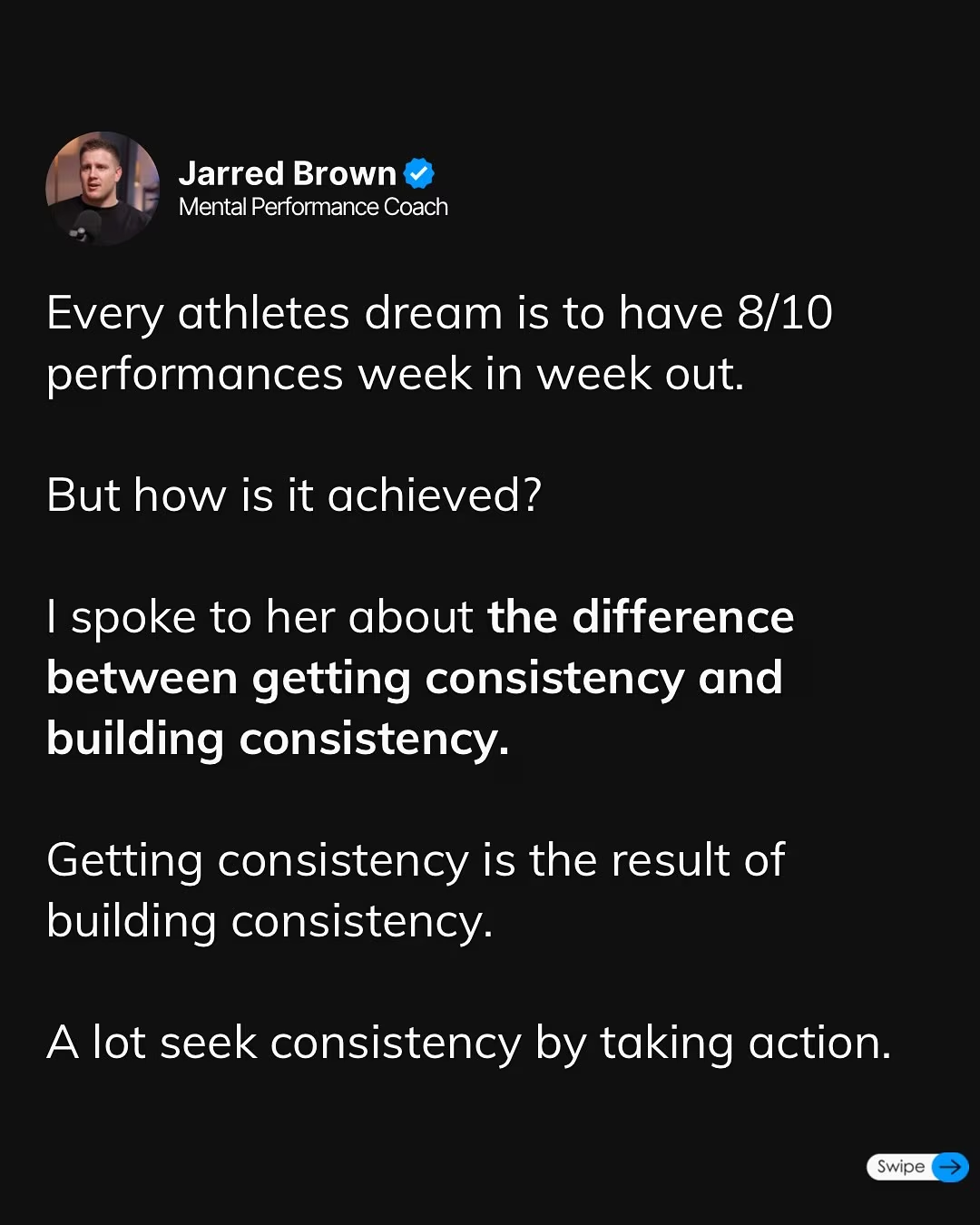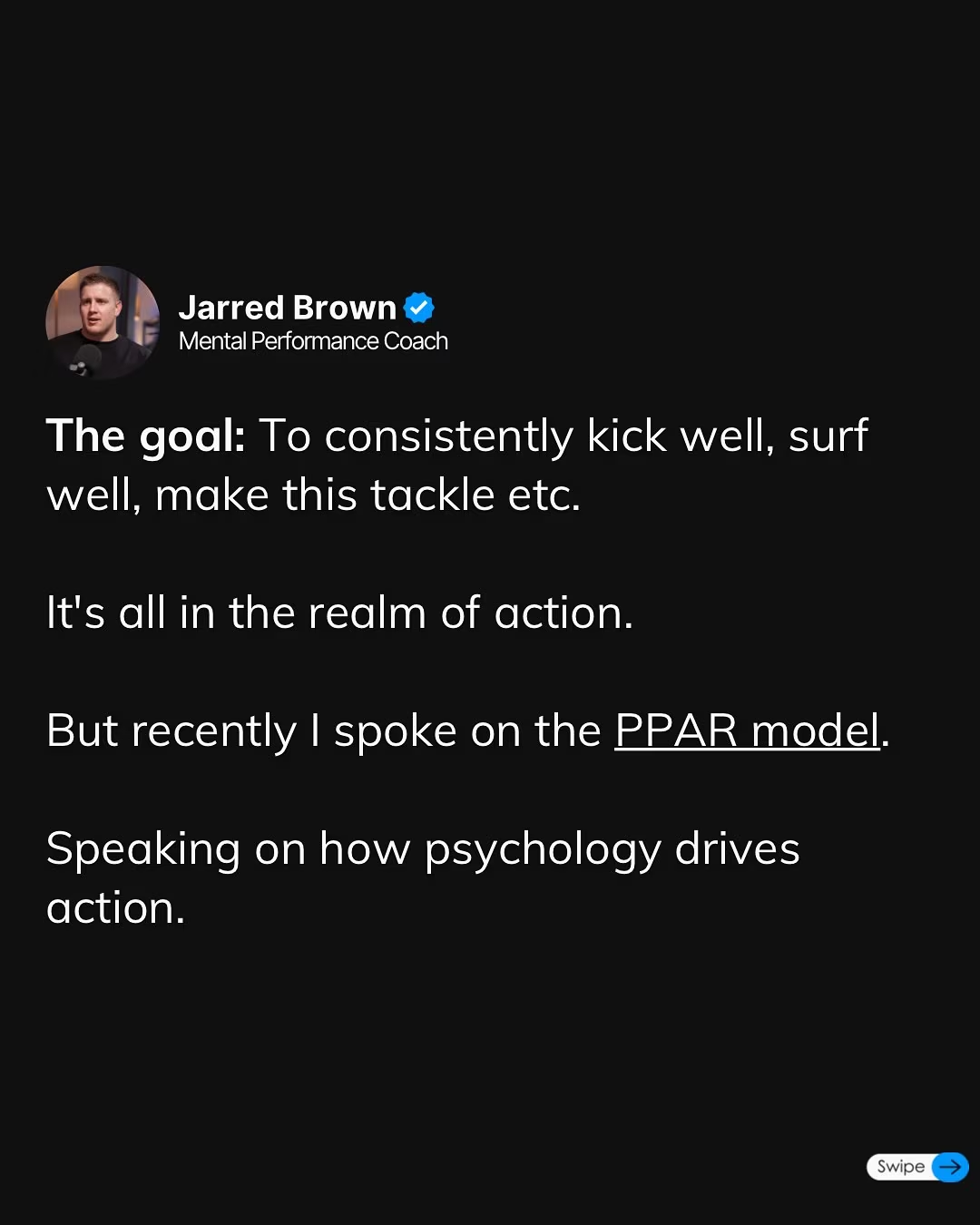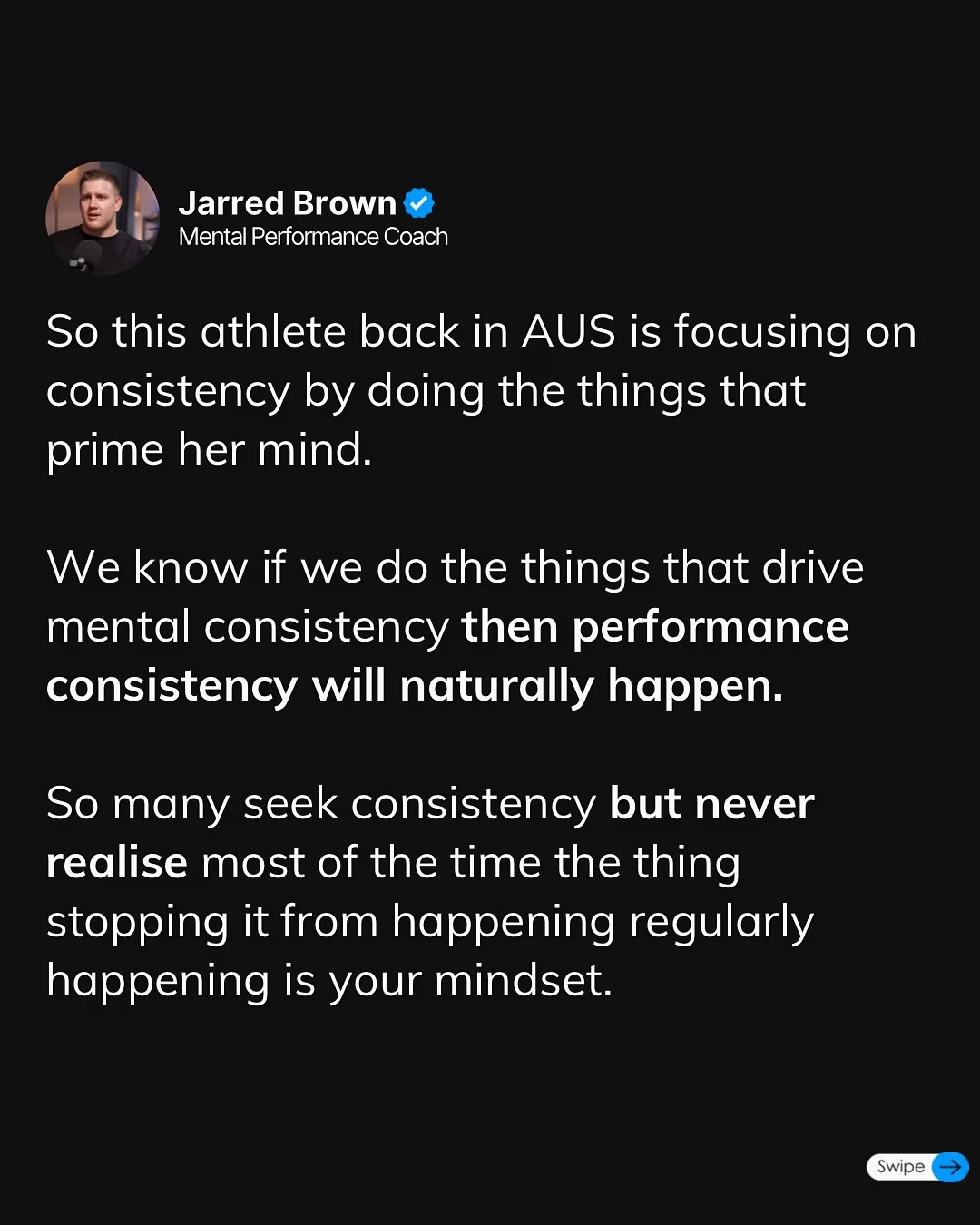Consistency In Sport: Mental Approach Uncovered
Jarred Brown reveals how mental focus and consistency drive top athletic performance daily.

Image: Instagram
At a recent session in Vienna, Austria, mental skills coach Jarred Brown was busy reconnecting with his Australian clients. His discussion centered on a topic that every athlete dreams of: consistency in performance. In his own words, the goal for any athlete is to deliver 8 out of 10 top-notch performances week in and week out. Brown’s approach, built on years of coaching experience and deep psychological insights, emphasizes that true consistency in sport is not merely an action but the result of building a consistent mindset.
Culture And Consistency In Sport
Brown begins by highlighting two key C’s in the world of sport: Culture and Consistency. Although he has discussed culture in depth in other sessions, the focus of his recent conversation was squarely on consistency. He explained that while many athletes chase consistency by simply repeating their actions, the real secret is constructing that consistency through mental preparation. His client from Australia had recently experienced success after making specific tweaks—building confidence early and finding a state of flow during competitions. This success, according to Brown, laid the groundwork for focusing even more on long-term consistency.
The Difference: Getting Consistency Versus Building Consistency
During his coaching call, Brown explained a crucial distinction: getting consistency is often seen as a short-term result of taking action, while building consistency means establishing a reliable mental framework. As he put it, “Getting consistency is the result of building consistency.” He further illustrated that many athletes attempt to nail down a consistent performance by simply focusing on repetitive actions such as kicking well or executing tackles repeatedly. However, when an athlete chooses to prime their mind—by engaging in practices that drive mental consistency—the result is a naturally steady performance when it matters the most.
Brown also touched upon an insightful model he recently discussed: the PPAR model. This model explores how psychology drives perception, which in turn influences action and, ultimately, results. By investing time in mental preparation, athletes can ensure that the psychology leading into their performance is strong. With the right mindset in place, performance consistency is much more achievable, even under high-pressure conditions.
Mindset: The Hidden Barrier To Consistency
A recurring theme throughout Brown’s session was the idea that the biggest obstacle to regular consistency is often the athlete’s mindset. Many athletes may feel that success is just a matter of taking more consistent actions, but Brown’s experience indicates that the mental barriers—such as self-doubt and overthinking—can undermine even the most physically capable individuals. He noted that the tweaks his client made were not only about physical changes but also about embracing the mental practices that foster clarity and focus.
Drawing on his years of coaching, Brown recalled previous conversations where athletes expressed guilt over taking necessary rests or feeling anxious about losing their edge. One memorable discussion revolved around the notion that rest, when used intelligently, is not a sign of weakness but a strategic move that enhances performance. This message resonates with the idea of building consistency: when athletes learn to manage their mental state through rest, meditation, or controlled routines, they prepare themselves to consistently perform at a high level.
Using The Ppar Model To Drive Performance
In another segment of the conversation, Brown delved deeper into the PPAR model – a framework that explains how mental preparation triggers perceptual clarity and favorable action outcomes. By aligning an athlete’s psychological state with their physical training, the model helps in creating a natural flow where performance consistency becomes part of the routine rather than a forced outcome. He emphasized that a shift in focus – from merely reacting to conditions to proactively building mental structures – is essential for achieving sustained excellence in sport.
The idea that mindset shapes every action in sport is also echoed in some of Brown’s earlier posts. In one notable Instagram post, he discussed how top athletes ultimately win before the game even begins, thanks to their extensive mental preparation. This reinforces his current message: that developing a robust mental routine is the key to consistently unlocking peak performance.
In summary, Brown’s session in Vienna centered on a powerful message: consistency in sport is not an accidental by-product of hard training alone, but the carefully constructed outcome of a disciplined mental regime. By addressing the psychological factors that often block regular success, his coaching provides athletes with the tools to make incremental improvements that aggregate to remarkable, consistent performance over time.
For athletes and coaches alike, this approach offers a practical roadmap. Instead of chasing fleeting moments of triumph, success can be achieved by building a culture of mental discipline and clarity. Brown’s insights serve as a reminder that with the right mindset, the dream of consistently high performance in sports can indeed become a reality.
Read full bio of Manjari Uppal




























